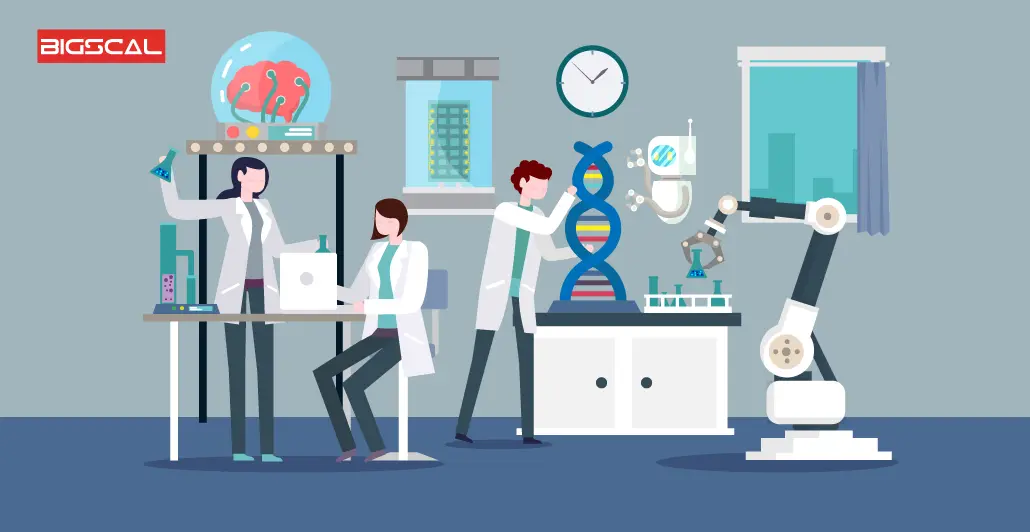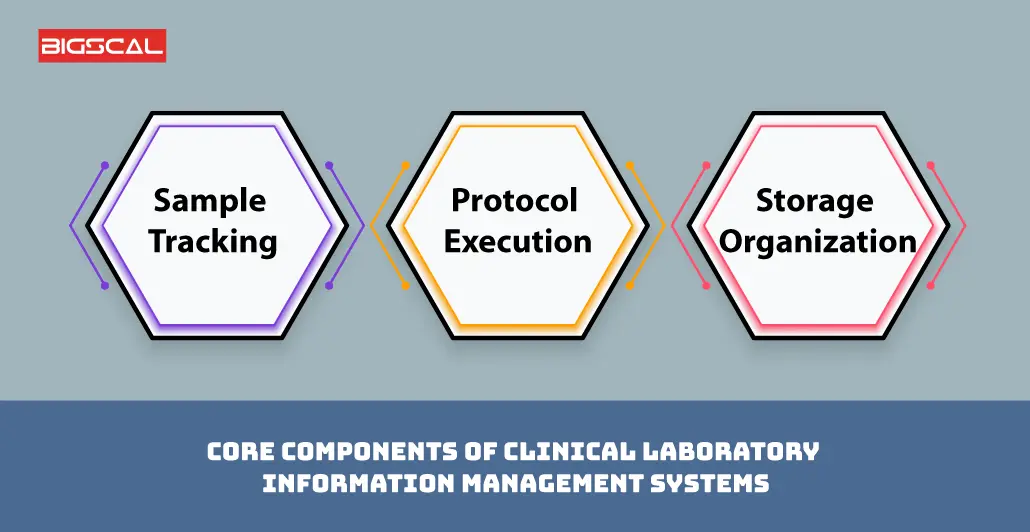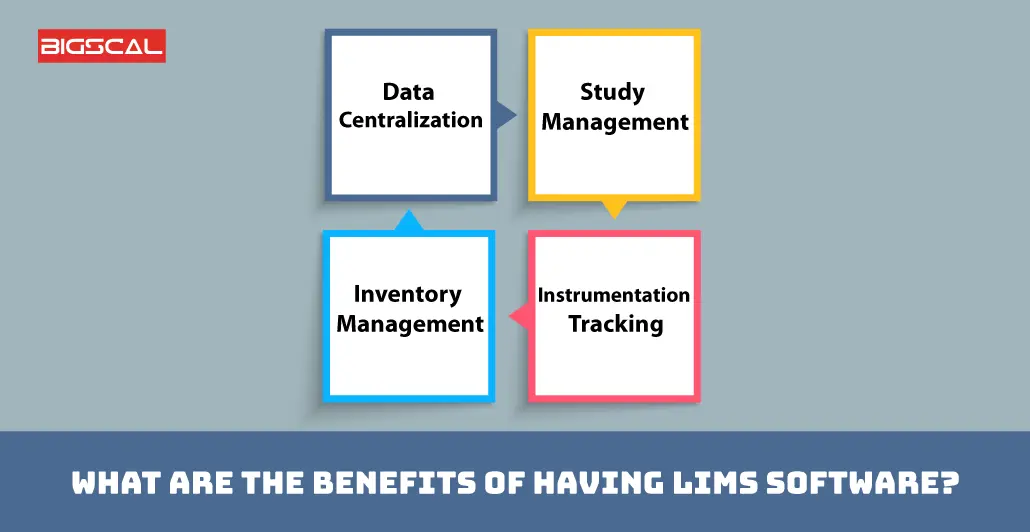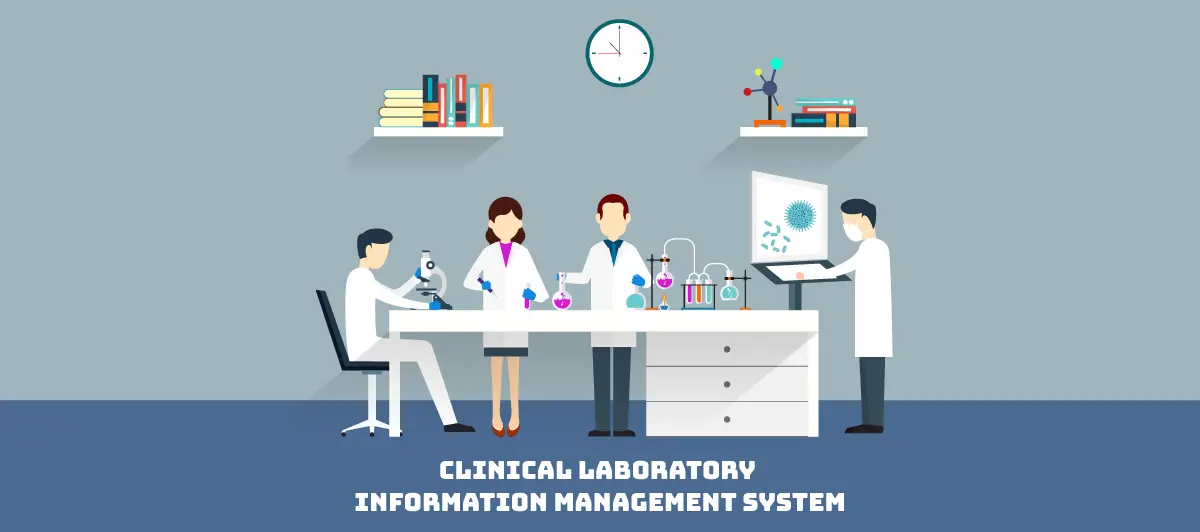Understanding Clinical Laboratory Information Management Systems: A Comprehensive Guide for 2024
Quick Summary: Explore the nuances of Clinical Laboratory Information Management Systems in this 2024 guide. Gain insights into their pivotal role, functionalities software design, and how they elevate and increase efficiency overall performance increase efficiency in healthcare settings.
Introduction
So, what do you mean by a clinical laboratory information management system? To begin with, let’s see its introduction. It is an information management systems lims) system or a software solution that will help in overcoming all the challenges in managing lab data, automation, and regulatory rules. It can help address the challenges of all the clinical laboratories across the world. As per its name, it can be effectively employed in managing laboratory work and track samples as per the data.
Hence, it sets a standard for laboratory operations through smooth workflow, tests, and reporting systems. Therefore, the growing demand for laboratories and traditional laboratory information management systems lims) has evolved. It can now do more tasks than just tracking.
If you are still struggling with manually handling lab data and record-keeping effectively, you are missing out on a beneficial tool. It is a modern-day aid for best-in-class features. In this blog post, we will walk through all the details of key features of the clinical laboratory information management system. From benefits and features to workflow, we will cover it all.
What are Clinical laboratory information management systems?

A clinical laboratory information system is software that leverages the power of a computerized approach for managing and tracking different aspects of tasks in the medical laboratory. In this location, various works happen simultaneously, such as collection, tracking, storing, processing, and examining of laboratory samples.
Medical laboratories are generally present in hospitals or large doctor offices. Many times, you might also see them as an individual unit or at branch clinics. They collect samples like blood or urine at first. Later, they examine these specimens to know if there is any problem with vitamin levels, disease, or pressure in the blood flow. Go through clinic management system article for your reference.
Hence, as a process development per the meaning of the clinical laboratory information management software’ systems lims’ system, the results of these reports will be put into the computer system for processing and further analysis. It is process is a process done before the results are given to the corresponding person. Hence, all of this information will be present in a LIMS for reference in the future.
What is the role of laboratory information management systems?
The main motive behind having a clinical laboratory information management system is to manage the data of the patient’s past and present visits. All the information is current in the database logically, which makes it more accessible. Hence, you can also sort it out according to different parameters. For example, if a person visits the laboratory for specific tests, one can store and search data later like:
- The date on which the person came to the laboratory for the test
- Name of the physician who prescribed the testing
- Sample specimen taken or type of testing
- Name of the person who did trials at the laboratory
- Who received the bill for the visit
- Date or exact time when the reports doctors got report
There are hundreds of patients on which laboratories conduct tests every week. Hence, it makes it difficult for them to ensure one stores and delivers information securely. Also, they have to give the reports timely.
Who can employ the usage of a Clinical laboratory information management system?
There are plenty of industries that employ clinical laboratory management systems to manage laboratory data. Here are some of the major sectors:
Clinical Research & Diagnostics: It can help in managing data of patients and providing specimen information. They also use it as an electronic laboratory notebook to preserve test records, track samples and results, do data analytics, generate reports, and automate the workflow to improve lab efficiency of the laboratory.
Biobanks software and Biorepositories software: They are the software used for tracking biological samples and managing the sample management process and location for storing data that can be easily retrieved. You can use the software to easily see data as per the sample.
Food & Beverage Testing Laboratories: These laboratories use it for collecting food and beverage samples, maintaining test records high their quality control results, doing their data analytics and data mining generating reports, and automating their process development workflows.
Cannabis Testing Laboratories: They use LIMS for managing their clients, testing orders, sampling, conducting tests for cannabis and pesticides, and much more. It also helps with terpenes, moisture, testing heavy metals, and much more. It also generates a Certificate of Analysis that complies with regulatory compliance.
What are the core components of Clinical laboratory information management systems?

Sample tracking
Tracking a sample from the moment it enters a laboratory through testing and storage is the primary purpose of a LIMS. This entails logging all of the sample’s initial accession data, including its ID, source, date of collection, and quantitation details (i.e., concentration, sample volume used, and particulate amount). As the laboratory sample moves through its workflow, more information is recorded and kept in the LIMS. This comprises time-based study metrics, derived sample data, and test results.
A LIMS not only records and monitors data unique to each lab sample, but it also keeps track of who has interacted with the sample and where it has been at all times. A sample might be combined with other samples the lab is testing or put in a batch. The lab sample is attached to the test tube, and a chemical “index” needs to be tracked by an external barcode label.
Thanks to this, it can now be distinguished from the other samples in the pool. The right LIMS system houses all of this critical, sample management and tracking data. Because sample data storage is just one LIMS component, this comprehensive solution only partially addresses the question. What is a lab’s right LIMS for? Additionally, it is essential to the development of a lab’s workflow.
Protocol Execution
The standardization of a lab’s laboratory workflows and underlying protocols, procedures, and steps is the second primary purpose of laboratory information management system software. To obtain an accurate and repeatable result, it is imperative that every lab tech, regardless of who is processing the sample or running a test, follows the precise steps in a published SOP (Standard Operating Procedure) when processing a selection.
A LIMS facilitates uniformity among the whole laboratory operations team by digitizing the steps involved in protocols and procedures. This guarantees that when putting a sample through a test, every member of the lab staff follows the proper procedures in the correct order.
Test assignments can be managed by LIMS software, ensuring that a sample is assigned the correct protocol as soon as it enters a laboratory. The results of lab tests can be documented, routed via the proper approval queue, and sent as reports to the relevant team members.
Storage Organization
Monitoring a sample’s location throughout its laboratory lifecycle is the third essential key component of a laboratory information management system. Starting with the individual lab sample, the same information management systems LIMS and keeps track of the sample tube or vial location within a specific box (such as slot A1 or B5). Subsequently, the same information management system lims and maintains the way of the drawer and rack in which that box is located. The system also keeps track of the room that the freezer is in and the shelf that the frame is on.
In crowded laboratories, the “storage hierarchy” (Sample > Position > Box > Drawer > Rack > Shelf > Freezer > Room) is essential for finding samples quickly. Research teams remain productive, efficient, and well-organized when they are aware of the exact location of lab samples.
What are the benefits of having LIMS software?

Data Centralization
One of the most common benefits of a clinical laboratory management system is it has a centralized system that can deal with all the additional components of the lab that are necessary for a smooth workflow. It is a benefit for both small and large size laboratories.
All the information, like studies, instrumentation, and inventory, is generally present at one location. This makes it easily accessible to the team as per their needs.
Study Management
Experts take lab samples to support higher levels of research or any project. Laboratory information software is helpful in providing organizations with an aid to group the same pieces under appropriate tasks. These studies have a subject that can further bifurcate into cohorts as per visits. A complete software solution will help researchers in managing every piece of information. Hence, it will centralize the transmission for better data management. Pave way through Bigscal’s article about decision support systems health care for better understanding.
Inventory Management
The lab supplies, like reagents and inventory, are essential to ensure that their functions take place smoothly. The laboratory staff will need an ample amount of stock to execute protocols effectively. Laboratory information management is a necessary tool that can help you have a peek into the material that is ready and what is to be ordered. Also, when experts use supplies, they will mark them consumed automatically, which can further trigger the ordering process. Hence, this helps avoid chances of delay in improving the efficiency of the team. It also has features like tracking lot numbers; therefore, the specific reagent for sample processing is recorded in the system for future audits.
Instrumentation Tracking
Each lab has a different amount of instruments that they use daily. These tools include liquid handlers, QC instrumentation, and sequencers. Hence, it is crucial for a lab to keep an eye on the test data for accuracy. This software will track all of these activities and generate automatic alerts for pending maintenance. It can help analyze any issue that comes up with lab instruments.
What is the future of LIMS Solution?
In 2024, the LIMS solutions market size was at $850 million, with a compound annual growth rate of 11.6%. By 2030, market value matrix lims solutions set to surpass $2.4 billion (9). This indicates that the implementation of LIMS systems and solutions in labs is growing and might grow substantially over time.
Companies are already implementing LIMS solutions alongside automated laboratory machinery to revolutionize laboratory workflows, increase operational efficiency and reduce the potential for human error. A strong vet clinic management system is gaining enormous fame recently.
LIMS can also automate workflows used in tandem with automated systems such as in cell culture or genomics to organize cell lines, keep track of passages, and monitor the maintenance process development of cell lines, as well as store data related to any assays completed on cells, lysates or DNA/RNA – for retrieval anywhere by lab staff.
In order for labs to grow and maintain regulatory and quality control standards, some sort of new LIMS implementation will become necessary, so it’s not going anywhere anytime soon.
More labs may switch to cloud-based services in particular because of their accessibility, lower, associated data and costs, high quality results, and fully encrypted data.
Want to develop a clinical laboratory information system? Here’s how Bigscal can help.
Start your seamless journey to develop your Clinical Laboratory Information System (LIS) with Bigscal. Our expertise lies in crafting robust and scalable solutions tailored to meet the unique needs of clinical laboratories. From efficient sample tracking to comprehensive data management, we ensure precision and compliance. Bigscal integrates cutting-edge technology to streamline workflows, enhance data accuracy, and improve overall efficiency.
Trust us to deliver a LIS that aligns with industry standards and regulatory requirements. Elevate your laboratory operations with our proven track record in healthcare technology. Choose Bigscal for a sophisticated and reliable Clinical Laboratory Information System that propels your lab into the future.
Conclusion
A laboratory’s overall operational efficiency increases through the implementation of a full LIMS data keep. A full, LIMS software implementation provides an effective data management solution by saving time that would for manual data analysis, logging and maintenance. As a result, there is less chance of human error and a more reliable information system to assist in making decisions. Additionally, it has an audit trail, which cuts down on the time needed for manual auditing. Furthermore, a LIMS solution works best when handling large amounts of data that need batch analysis and regular operations. Additionally, it addresses a range of compliance requirements that support labs in upholding their safety, privacy, and regulatory standards.
FAQ
What does a modern LIMS system do?
The Laboratory Information Management System (LIMS), addresses many aspects of laboratory processes such as tracking samples, data management and workflow automation. The process automation, and optimization, discharges duties like accuracy in data management, integrity and efficient data management, and leads to concurrent.
What are the different types of LIMS?
LIMS comes in various types, including:LIMS comes in various types, including:p>
- Sample-centric LIMS: Emphasizes placing tag on these products.
- Process-centric LIMS: Takes control of work systems.
- Enterprise LIMS: Brings about an integration with several organizational systems.
What type of database is LIMS?
“EMIT” as the rule, uses an equivalent of relational database management system (RDBMS) to put information in an orderly way. These multiple layers promote the security and organisation of the lab information stored. It simplifies searches, retrievals and administration.
How is the use of new LIMS in hospitals?
In hospital’s laboratories, LIMS is the key running system to safeguard patient’s samples, test results, and lab processes. Autonomous Last Mile Delivery system not only helps in digesting more data simultaneously but also provides diagnostics the needed accuracy, enhances notifications, real time reporting expedites the process, and ensures the regulatory standards are complied with.
What is the use of LIMS software?
LIMS software is for:
- Sample Tracking: The lifecycle of samples is second.
- Data Management: Tidying up and compiling laboratory records.
- Workflow Automation: Striving to streamline laboratory systems.
- Compliance: Following industrial regulations and having a well-organized compliance structure.





